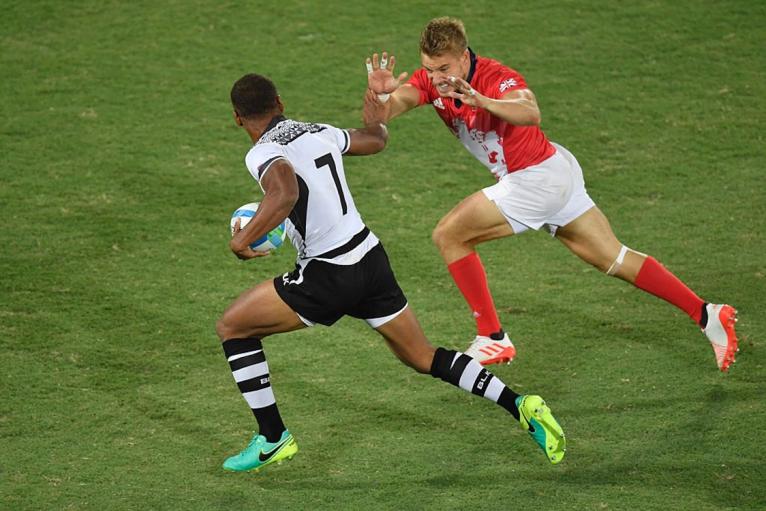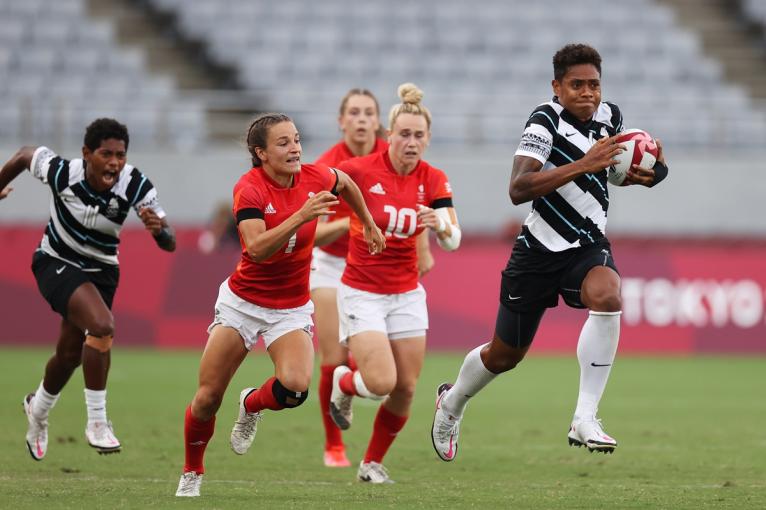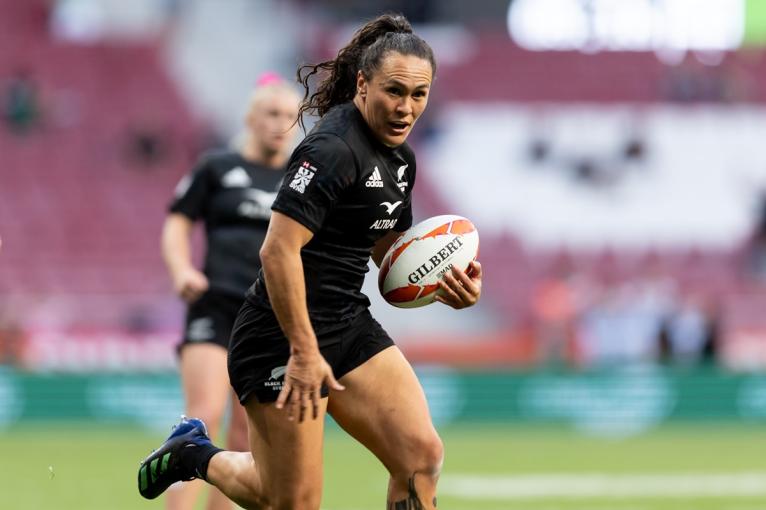If you’re looking for an impartial take on whether rugby sevens is the perfect Olympic sport, you’re in the wrong place. Unapologetically, I will try to persuade you (if you need persuading) that sevens is the greatest example of an Olympic event you could wish for.
For newcomers
It is often said that sevens is a gateway to the game of rugby.
Rugby can be complex: many intricate plays, the cerebral depth of the technical side, the endless tactical discussions. But, in essence, it is about getting a ball from one side of a field to the other without throwing it forwards.
The seven-a-side game celebrates this simplicity and showcases it in a beautifully exciting way with fewer players on the pitch and less emphasis on the set-piece.
As a result, sevens invites anyone unfamiliar with rugby to enjoy the oval ball game. You may love sport in general, you may be passionate about the Olympics, you may just have ended up with a chance ticket in the ballot. Even if your country isn’t involved in Paris, you pick your favourites and get behind them in true sevens festival fashion. One thing is certain: everyone at the Stade de France during the sevens competition will be entertained.
Blink and you’ll miss her 👀
Reapi Ulunisau is dangerous on the pitch 😮
#Rugby7s | @fijirugby pic.twitter.com/8SpE2rEYTv— Rugby Sevens (@SVNSSeries) July 11, 2024
The fast scoring in sevenss is a particular highlight: a try is scored every 73 seconds or so. That is a lot of easy-access celebrating in the stands. The ball is in play for a large portion of the session. Laws like the 30-second countdown clock for conversions and kick-off maintain the speed of play so there’s no time for an idle mind to wander – modern media and entertainment doesn’t like to hang around. Even the most distracted Gen Zer can mentally stomach 14-minute matches.
Digestible as a spectacle, a session at the sevens offers multiple tasty morsels that allow you to sample the high-octane action, pause for a few minutes between games, then go back for more. And like any good streaming series, rugby sevens is entirely bingeable. The frequency of matches across three days is the ideal format for the Olympics where tickets are sold for sessions.
New nations on the map
What could be more exciting for the Olympics than new players in the game? And new winners, too?
Fiji men famously won their country’s first-ever Olympic medal at the 2016 Rio Games. The women added bronze in Tokyo as the men also picked up a second gold. In this way, sevens has been a vehicle to increase the reach of the Olympics. As for what it meant for Fiji, what better example of adding to the annals than changing the look of the currency in a country – as was the case in Fiji when then-coach Ben Ryan and captain, now coach, Osea Kolinisau appeared on the 7 dollar note.

Value in the Values
In 2009, the International Olympic Committee (IOC) voted overwhelmingly to add rugby sevens to the Olympic programme. The vote was 81-8 in favour of the sport’s inclusion – a majority rarely seen. During the pitch, Bernard Lapasset and members of his team espoused the global nature of the sport.
Those of us in the game might take for granted the familiar scenes of Kenyan fans rubbing shoulders and exchanging dance moves with Uruguayans. Or green-clad Irish supporters sharing airtime for their songs with the vocals of the Fijian faithful.
The modern Olympic values of Excellence, Respect and Friendship could easily be among those painted on walls of rugby club changing rooms around the world. These values are central to the model of the game. The Olympic label is a no-brainer.
Pierre de Coubertin, father of the modern Olympic movement, would have been present to see these values in action when rugby first took to the Olympic stage in 1900 in Paris.
As the Olympic Games returns to Paris for the third time, sevens takes its third turn at the greatest sporting meetup on the planet. The sport’s inclusion was in part for its tradition but also its trajectory.

When the IOC accepted sevens, they would have identified its potential as a sport for the future and a huge part of this was the equality of men’s and women’s competitions. The parity in the SVNS season is greater than ever and, while all sports strive to close the gender gap, rugby sevens is a shining light.
Over recent years we have seen the seasons aligned and individual nation programmes becoming more egalitarian, including funding for infrastructure and salaries.
‘Are you not entertained?’
From the individual trials and tribulations, the turbulent toing and fro-ing on the scoreboard, and tales of heroic team wins and losses, rugby sevens has it all.
Never has a sevens tournament gone from start to finish without some gripping stories. Just look to the last two Olympic Games. Before Rio, the Spanish men brought us all to tears in qualifying for the jamboree at the last. There was selection histrionics as XVs players and NFL players took to the stage. Then, once under way, we had last play wins and extra-time tragedy like that in the men’s quarter final between Great Britain and Argentina.
Whoever writes the script of rugby turned the story of rivalry into one of revenge in Japan, when the Argentinians claimed the bronze medal from the clutches of GB. This was after the boys in blue and white had beaten South Africa with only 5 men on the pitch. Gaston Revol’s tears of despair transforming into ones of joy. The theatre was more than matched in the women’s competition, as defending Olympic champions Australia were knocked out by Fiji in the quarters who went on to win bronze. Tales of glory and ruin strewn across the competition.

So much of this storytelling is born out of the passion on show. All Oympians are passionate. But serve me up a sight of Sammy Sullivan crying as she salutes her national anthem any day. Or I’ll take the Black Ferns delivering a steely haka for Portia Woodman-Wickliffe’s milestones, or even a bit of the coaches screaming from the sideline (keep an eye on Argentina men’s coach Santiago Gómez Cora). Passion might just be the biggest player in this game.
Is there any doubt that if there was a competition for the most Olympic of Olympic sports, rugby sevens would take gold? I don’t think so.


Comments
Join free and tell us what you really think!
Sign up for free